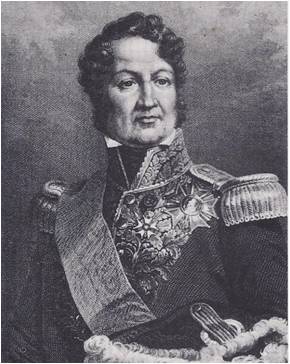The Austrian city of Vienna in 1814 would have dazzled even a Hollywood director. Emperors and empresses, kings and queens, dukes and duchesses — members of ruling families who hoped to recover thrones or to increase their lands — were there. So were leading statesmen from practically every country in Europe. For the so-called Congress of Vienna was meeting to make peace, now that Napoleon had finally been defeated. The Congress was going to set the world right again. The old city was overcrowded. Hotel rates soared and homeowners rented their houses at unheard of prices. Laundresses grew wealthy and …
Read More »Tag Archives: Louis XVIII
Democracy in France 1815-1830
AFTER THE fall of Napoleon, Louis XVIII came to the throne of France. Although his powers were limited, by following a middle-of-the-road policy he was able to rule peacefully until his death in 1824. His brother, Charles X, then became king and soon began using his influence to undo as much of the French Revolution as possible. He was able to have laws passed which required the government to pay large sums of money every year to the nobles whose land had been taken from them during the revolution. The Catholic Church was strengthened and once again priests began teaching …
Read More »Democracy and Nationalism 1815-1848
WHILE THE Industrial Revolution was transforming England and creating a new kind of society, the continent of Europe seemed to be going backward instead of forward. After Napoleon’s defeat in 1815, the monarchs and aristocrats brought back the principle of “legitimacy.” Legitimacy meant that only kings, aristocrats and the established church had the right to rule and that the people must obey them without question. The American and French revolutions had been fought to overthrow the principle of legitimacy. The idea behind these revolutions was that governments were created by the people. As the Declaration of Independence put it, all …
Read More »Emperor of the French 1804 -1815
On December 2, 1804, in a ceremony of great pomp and splendour at the cathedral of Notre Dame in Paris, Napoleon Bonaparte was crowned Napoleon I, Emperor of the French. Pope Pius VII was there. He had come from Rome to offer his blessing and to place the crown on the head of the new emperor but Napoleon did not do what was expected of him. Instead of kneeling, he took the crown from the Pope’s hands and put it on himself. He also placed a crown on the head of his wife, Josephine. Only twelve years had passed since …
Read More »


